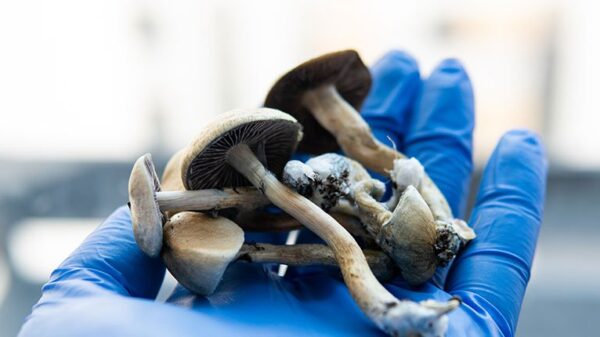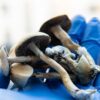The National Institutes of Health has just launched grants to fund psychedelics research aimed to treat substance use disorders.
The agency, through the National Institute on Drug Abuse, published the grants this week that will support up to four studies over five years to explore how psychedelics alter cognitive, emotional and social processes involved in substance use disorders.
Eligible applicants include universities, non-profit organizations, for-profit businesses, state and local governments as well as federal agencies.
Research teams can receive up to $700,000 for an initial two-year phase to develop their studies, followed by up to $500,000 per year for three more years of research. Two studies will require human participants while
The NIDA intends to fund up to four research teams under this notice offering a total of $1.5 million US in funding. Applications will be evaluated based on peer review, potential for advancing the field and availability of funds.
Read more: Cannabis and psychedelic use among young people reaches all-time high in 2021: NIH
Read more: Positions of NIH, FDA signal we’re ‘on the brink of a psychedelic revolution’
The studies must use neuroimaging and behavioural analysis to link the biological effects of psychedelics to changes in addiction-related cognition and behaviour.
Potential research areas include determining which brain circuits and networks are altered by psychedelics; how those changes influence thoughts, feelings and actions over different time periods; optimal doses for various effects; and whether findings from animal research translate to humans.
Teams interested in applying must propose basic science studies involving humans that also meet the definition of clinical trials. The research cannot have a specific commercial application in mind. The goal is to better understand the fundamental effects of psychedelics on the brain and behaviour.
Advancing Psychedelics Research for Treating Addiction (R61/R33 Clinical Trial Required) https://t.co/kr3xqmsJGM
— NIH Funding (@NIHFunding) May 16, 2023
Advancing Psychedelics Research for Treating Addiction (R61/R33 Basic Experimental Study with Humans Required) https://t.co/e1xdeIBlYy
— NIH Funding (@NIHFunding) May 16, 2023
Psychedelics research momentum is increasing
In 2021, Johns Hopkins University in Baltimore was awarded a nearly $4 million NIH grant to investigate the potential effects of psilocybin on tobacco addiction.
Over the past 20 years, research into psychedelics for certain psychiatric and medical conditions has steadily regained mainstream interest. Largely funded by philanthropic donations, studies have explored the use of psychedelics to treat major depression, existential distress in cancer patients and substance use disorders.
These research investments mark a gradual but persistent revival of scientific inquiry into psychedelics following decades of dormancy.
Last January, 60 NIH researchers gathered in the inaugural meeting of the Psychedelic Science and Medicine Interest Group.
“And if their enthusiastic reception was any indication, it appears that the NIH is primed to start anew on research on molecules, receptors, and neural systems that mediate the actions of psychedelic drugs,” reads a release by NIH media.
There has been a recent surge in clinical trials studying psychedelic drugs like psilocybin and LSD for psychiatric conditions, said clinical director of the National Institute on Alcohol Abuse and Alcoholism David Goldman during the inaugural meeting.
He noted challenges in clinical trials like controlling for expectancy effects and negative reactions in placebo groups such as expecting psychedelic effects but not getting them.
Ketamine paved the way for psychedelics research
The increased research funding and interest in psychedelics can be attributed in part to the success of ketamine for depression and suicidality, according to Carlos Zarate Jr., a leader in ketamine research.
Ketamine is a dissociative drug, not a classic psychedelic like DMT or LSD but Zarate said ketamine helped pave the way for psychedelic research by showing the potential of high-risk, high-reward studies.
Recognition of the importance of clinical settings and supportive therapy has also aided the psychedelic renaissance. In summary, renewed interest and funding, the success of ketamine, and optimal clinical practices have converged to drive a surge of research into psychedelic treatments.














